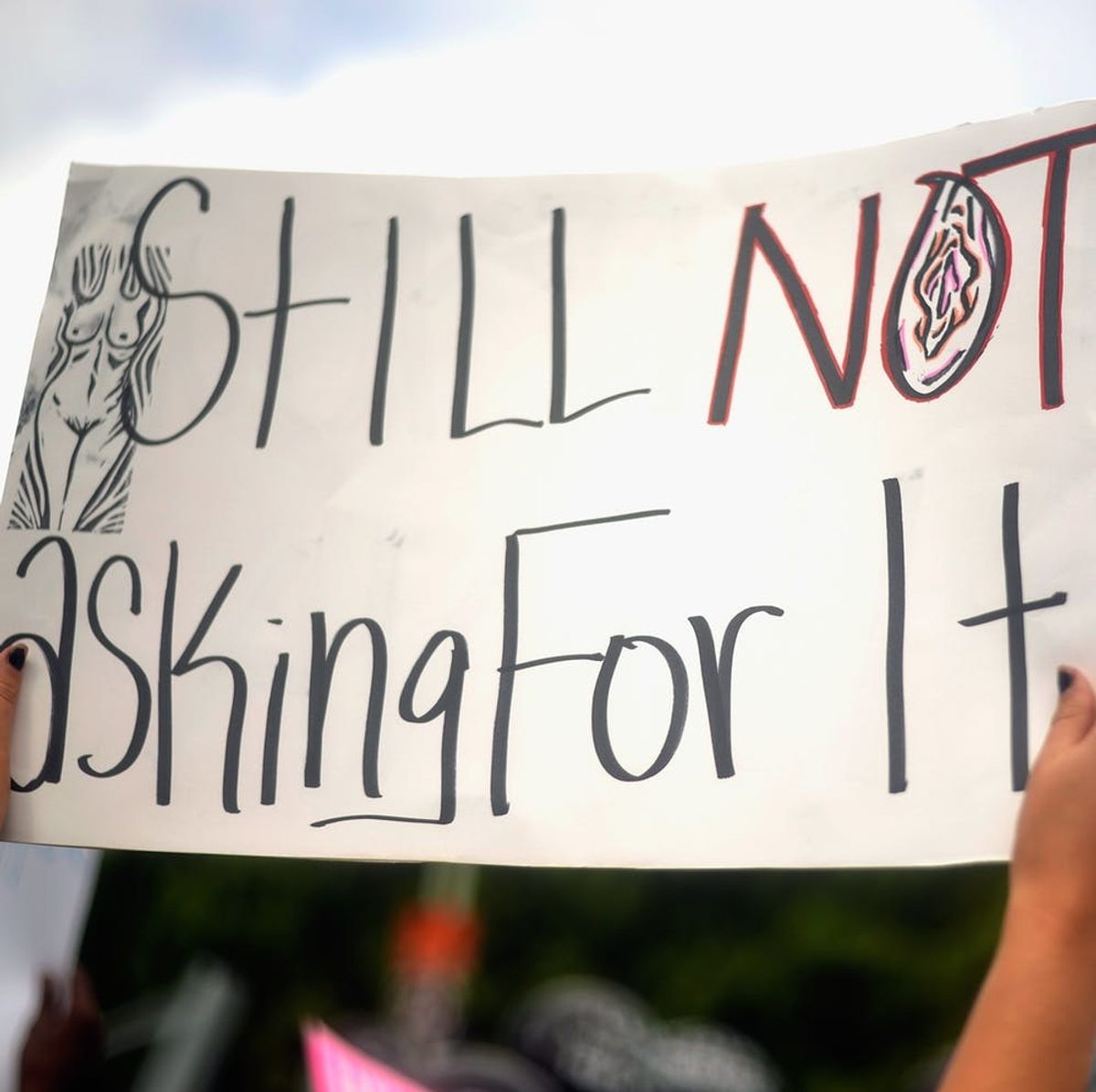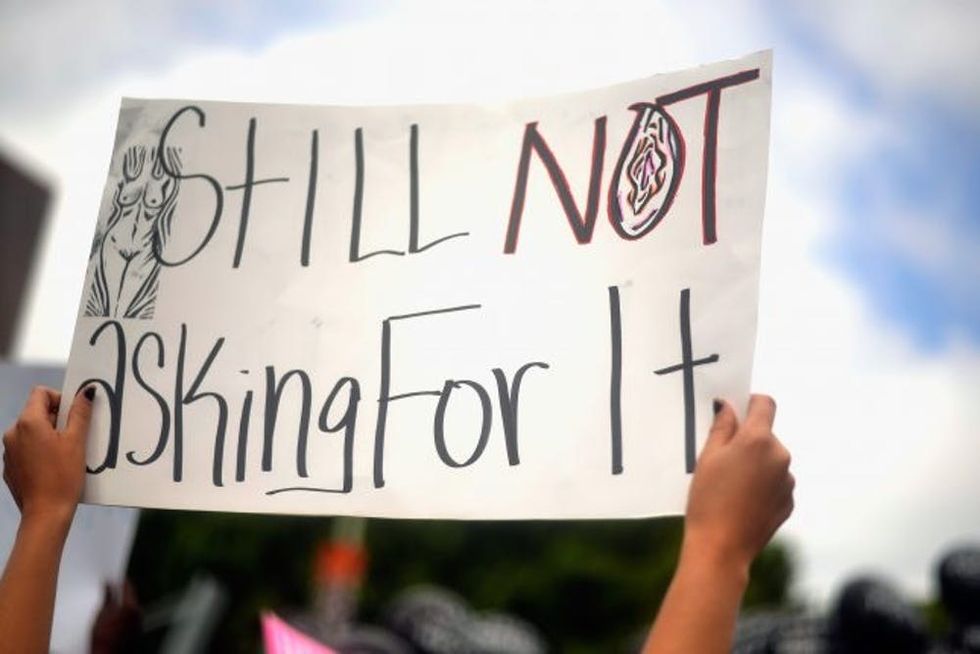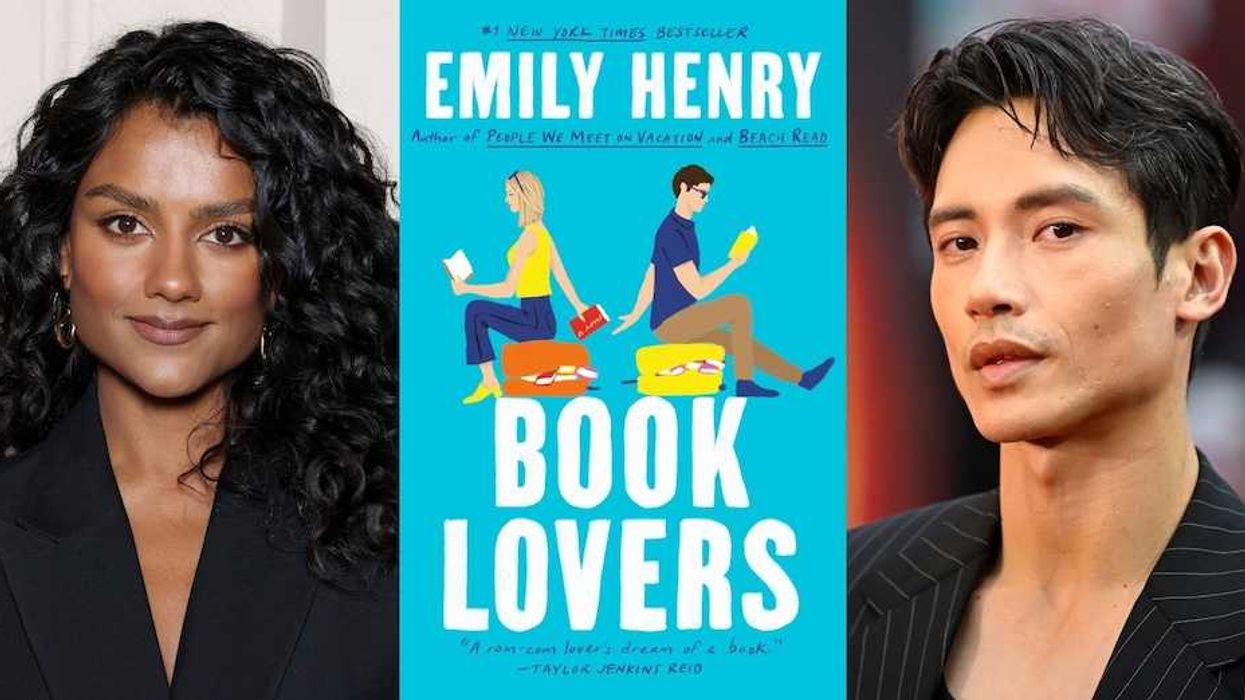“I’m done pretending sexual assault is a woman’s issue.”
Why These New Hashtags Are Replacing #MeToo As Battle Cries Against Sexual Abuse

Unless you’ve been living in an internet-free, social media-deprived cave, you’ve seen #MeToo trending this week. The viral hashtag, which was originally started by Black activist Tarana Burke 10 years ago before getting revived by actress Alyssa Milano, has been making waves in the wake of ongoing allegations against Harvey Weinstein. The idea is to give visibility to the magnitude of sexual harassment and abuse by encouraging victims of either (or both) to simply post the status “Me too” to their social media accounts.

There is certainly a lot to praise about a movement that pushes (mostly) women’s experiences of (mostly) male sexual violence into the forefront. By drawing attention to the pervasiveness of these incidents, the magnitude of the problem is a lot harder to ignore. But here’s the thing about putting the onus on victims to raise their hands about, well, being victims: It shifts the focus onto them, and away from the perpetrators. Some critics of the #MeToo movement have pointed out that this prevents abusers from being held accountable for their behavior.
Instead of #metoo, perps should post #ididthat. For every #metoo, there is an #ididthat. Takes courage to admit #ididthat, and to change.
— joski (@oskirama) October 16, 2017
In that vein, #IDidThat, #HimThough, and #HimToo are among the new counter-hashtags that have emerged as alternatives to the #MeToo tidal wave. Some are taking the perspective shift to heart by taking to social media to profess their previous wrongdoings, and apologize:
Wasn't easy to write but here it's. I am sorry and I will do better. #IDidThat pic.twitter.com/jHgq0uMFp8
— Devang Pathak (@DevangPat) October 16, 2017
Unfortunately, #IDidThat hasn’t quite taken off. It seems that, while people expect women to do the work of reliving their traumas to be taken seriously, few (again, mostly male) perpetrators appear willing to publicly take responsibility for what they’ve done wrong. As of press time, only the above #IDidThat admission can be found on Twitter. (Though, in happier news, there are many more on Facebook.)
As for the women’s perspective, Vox writer Liz Plank took to Facebook to write:
#MeToo I was sexually harassed, groped, physically and verbally attacked. But what about him though? Who decided it was women’s job to fix men? Why is the burden always on women? I’m done. I’m done pretending sexual assault is a woman’s issue. Your shame is not ours. No sir. #HimThough
Sums it all up.
What do you think of the #MeToo backlash? Tell us @BritandCo.
(Photo via Chelsea Guglielmino/Getty)

















